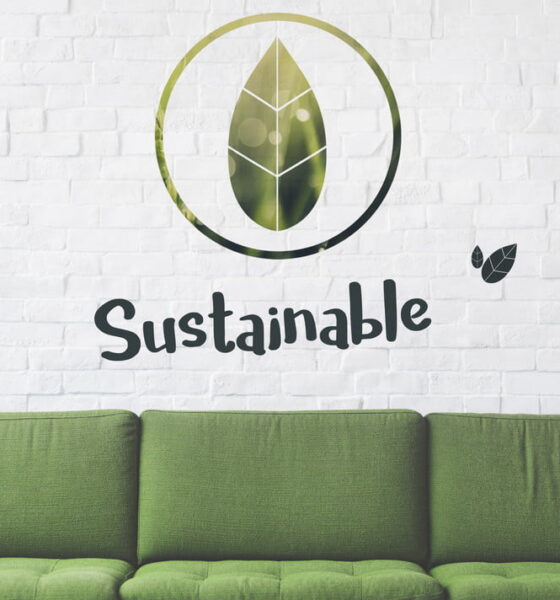

Sustainability
Building a Better Future Through Scaling SDG 4.7: Thoughts from Russell Hazard, Twenty-first Century Educational Researcher
How do we develop citizens who can help us navigate through the dangers we face, both regionally and globally? Issues like climate change, pollution, resource depletion, economic changes due to automation, fake news, and the potential for conflict arising from all of these are increasingly important. How can we also help young people to thrive in a rapidly changing workplace and have the skills to start enterprises that improve their communities?
Education is clearly part of the answer. Educational researchers around the world are still struggling to scale reforms so students everywhere receive an education that helps them attain basic literacy and numeracy. However, there is a growing recognition that students also need a range of twenty-first century skills and dispositions that will allow them to thrive in an ever-changing global environment.
Organizations such as the Mahatma Gandhi Institute of Education for Peace and Sustainable Development (MGIEP), which is UNESCO’s category 1 research institute for Sustainable Development Goal 4.7 (Global Citizenship Education and Education for Sustainable Development) work to enable scaling so students all around the world can benefit from this empowerment-based education style.
Although it is possible, and sometimes desirable, to have stand-alone courses that teach these skills, the primary focus is now on embedding them into all subjects so they are a seamless part of every student’s education. Research in this field is ongoing and work is underway to identify how to help subject teachers to embed SDG 4.7 into subjects like math and English.
Russell Hazard, Director of the Teaching, Learning, and Innovation Center at Aidi School in Beijing, China states that, “English language education is often problematic and sometimes even counter to the needs of students in developing countries, so we have to be very careful. In cases where the decision is made to provide English as a subject, using SDG 4.7 as the curricular framework of the course can be one way to make it a more useful experience”.
There are many factors, depending on the education context, which can impede learning or the relevance of the subject. For example, English as a Second Language (ESL) teacher, Mary Susan Anyiendah teaches students in Kenya. She writes about the many challenges she has encountered throughout her experience in this Frontiers in Education article:
“Teachers in my context face numerous challenges in and out of the classroom. Core among them is the limited classroom language opportunity for the learners to practice the language. In upper primary, the learners’ only opportunity to use English language is limited to the daily 35-minute English lesson (KIE, 2002). Further, these learners are not given ample opportunities to practice the English language in the classroom when learning other subjects because of switching from one language to the other”.
Hazard points out that, as one example in such a situation, using the English language classroom to simultaneously learn the digital literacy skills that allow students to connect to a worldwide community of English speakers and create forums to examine concepts such as cultural similarities, differences, and intercultural cooperation might make the subject more relevant as well as giving students the skills to lever the internet for their own benefit throughout their lives. Even in many low resource areas of the world, students will have some access to the internet through mobile devices and can connect with students in classrooms in other countries through free platforms such as ePals. These kinds of programs often use a Project Based Learning approach to help students learn real world skills while still developing their subject knowledge.
Even as this type of education is developed and trialed around the world, the problem of scaling, or helping it become available to children in all counties regardless of income, remains. Scaling educational initiatives is difficult for many reasons. These include slow government bureaucracies, limited financial resources and infrastructure, a lack of teacher training/professional development and materials, and the need to have professionals analyze the situation to make sure the initiative is suitable for the specific context, among many more.
Many educational researchers, international organizations such as UNESCO, and governments are working to understand how to scale these initiatives even as research into curriculum and technological support continues. One example of these scaling efforts is a recent research project by Russell Hazard. After years of research combining international education policy, curriculum design, professional development, and educational technology, he decided to try providing an online teacher professional development and materials platform so English teachers anywhere in the world can get free training on both the theory and practice of delivering 21st century Global Citizenship Education and Education for Sustainable Development.
Russell Hazard explains, “English education is an interesting vector for these skills because English is taught in the public school systems of so many countries, because many people see it as a global language or as a gateway into a global community, and because it is based in communication, but the topic of that communication is very flexible. So, it can be harnessed sometimes to communicate about issues of local importance and global importance as well as communicating explicitly about ideas like agency, or the inclination and ability to make positive change.”
Hazard says it makes sense for interested teachers anywhere in the world to be able to directly access research, resources, and a community dedicated to trying to make education as relevant as possible for students. Given the opportunity for free online professional development, interested teachers can explore implementation in their own contexts and even become part of bottom-up action research projects while university level researchers and policy makers continue to research and create top-down support.
As our global economy expands and ongoing disruptions change life ever more quickly, one thing remains certain. Our school systems must learn to keep adapting and responding to our changing world so our populace is able to adapt and flourish as well. Innovative solutions to scaling are an important component of this effort and the utilization of the internet and other digital technologies have the potential of delivering ongoing education for both teachers and the students they serve regardless of where they may be or what resources they may have.


 Environment12 months ago
Environment12 months agoAre Polymer Banknotes: an Eco-Friendly Trend or a Groundswell?

 Features11 months ago
Features11 months agoEco-Friendly Cryptocurrencies: Sustainable Investment Choices

 Features12 months ago
Features12 months agoEco-Friendly Crypto Traders Must Find the Right Exchange

 Energy11 months ago
Energy11 months agoThe Growing Role of Solar Panels in Ireland’s Energy Future





























